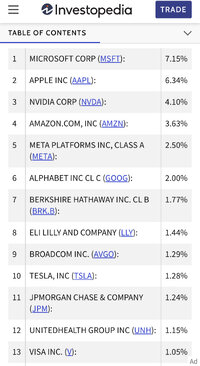You know these two statements are incompatible.
When they say pros can't beat the S&P500, they're referring to something very specific - managed mutual funds.
A managed mutual fund is usually a person or team looking around the market and picking stocks they think are undervalued, that the market isn't seeing the value. This was a very good strategy until around 2010. What changed? The Fed started ZIRP, which heavily favored tech stocks and hurt value stocks. The S&P500 is also market cap weighted, so if you put $100 into a S&P500 ETF, the money goes disproportionally to the larger cap stocks in the index. This influx of money makes those large cap (mostly tech) stocks go up, which in turn moves them further up the market cap scale. Then they get a bigger proportion of your investment the next time. It's a self-reinforcing cycle that has resulted in 7 stocks making up 40% of the index, and nearly 100% of its gains today. As more and more people were moved from managed pension and retirement plans to self managed 401ks, the move from active to passive management accelerated.
So over time retail investors noticed their S&P500 index fund was going up more than their managed mutual funds. So investors started selling their managed mutual funds, which caused forced selling in the very stocks the managers identified as the best stocks. Again it was a self reinforcing cycle that widened the gap between value and tech and managed mutual funds vs passive indexes.
So where are we today? We have a very distorted S&P500 and retail investors all in on their passive indexes, thinking they always go up. What's the problem? The problem is that all these trends that made the S&P500 go up so much, will go in reverse if we get a protracted downturn. We don't even have ZIRP anymore, but retail investors continue to merrily pump money into their passive ETFs, because they've gotten used it it always going up - not seeing the incredibly financial gymnastics the Fed has had to do to keep the bubble inflated.
If you really belief what you're saying, you shouldn't be buying gold, just buy an S&P500 index.

:max_bytes(150000):strip_icc()/GettyImages-516340682-efc0c945fade472ba72e33a5121425be.jpg)

